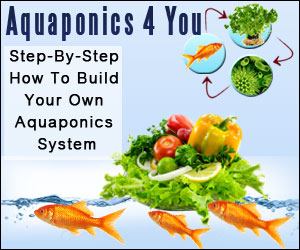Tips for Organic Vegetable Gardening
Organic vegetable gardening is easy. But to help you, here are some tips you should know.
The most important thing to do is to decide what you want to grow. There are so many vegetables to choose from but keep in mind that certain vegetables cannot be grown because of the climate so take that into consideration as well.
So you want have a hard time taking care of it, choose those that are well adapted to the soil, temperature, sun and shade exposure.
If you live in an area where droughts are frequent, make sure you are planting drought resistant vegetables since it does not eat up that much water and can withstand dry weather.
You should determine how much space you have. This will make it easy for you to plot on a sheet of paper the layout of how you want your vegetables to grow.
You should mulch your vegetables with organic material. This can be made from food waste, dead leaves or grass and manure. This helps conserve water, adds humus and nutrients as well as discourage weeds from growing.
The best part is that you don’t have to dig deep to put these in because 85% of the vegetable’s roots are found in the top 6 inches of soil.
Aside from compost, you can also use natural fertilizers and organic material to help the vegetables grow. They also encourage native earthworms that are nature’s tillers and soil conditioners.
The biggest threat that could destroy your vegetables are pests. To get rid of them, you should use other insects, birds, frogs. If your crops though have been infected, spray infected stems and leaves with dilute soapy water and then clear water that is very effective.
If you decide to buy vegetables that are grown instead of using seedlings, most of these come in plastic containers. Be careful when you remove them so you avoid tearing the outside roots especially if these have grown solidly inside the container.
When planting vegetables, don’t stick with just one but plant many different kinds because this invites insects to take up resident in your yard.
Believe it or not, only 2 percent of the insects in the world are harmful. This means the rest are beneficial. Some examples of these include ladybugs, fireflies, green lacewings, praying mantis, spiders and wasps since they eat insects that try to eat your vegetables. Another thing they do is pollinate the plants and decompose organic matter.
Don’t forget to remove weeds that come out in your garden. You can pull these out by hand or spot spray it with a full strength of household vinegar. Best of all, it is safe for the environment.
Practice crop rotation. This will make sure that the soil is always fertile. When planting the new vegetable, avoid regular deep cultivation as this will damage the roots, dry out the soil, disturb healthy soil organisms and bring weeds to the surface that will soon germinate.
If you follow these tips, you will surely be able to have a successful organic vegetable garden. You can plant and harvest them all year round so you don’t have to buy these goods anymore from the supermarket. That is assuming of course you have a huge parcel of land to work with.




